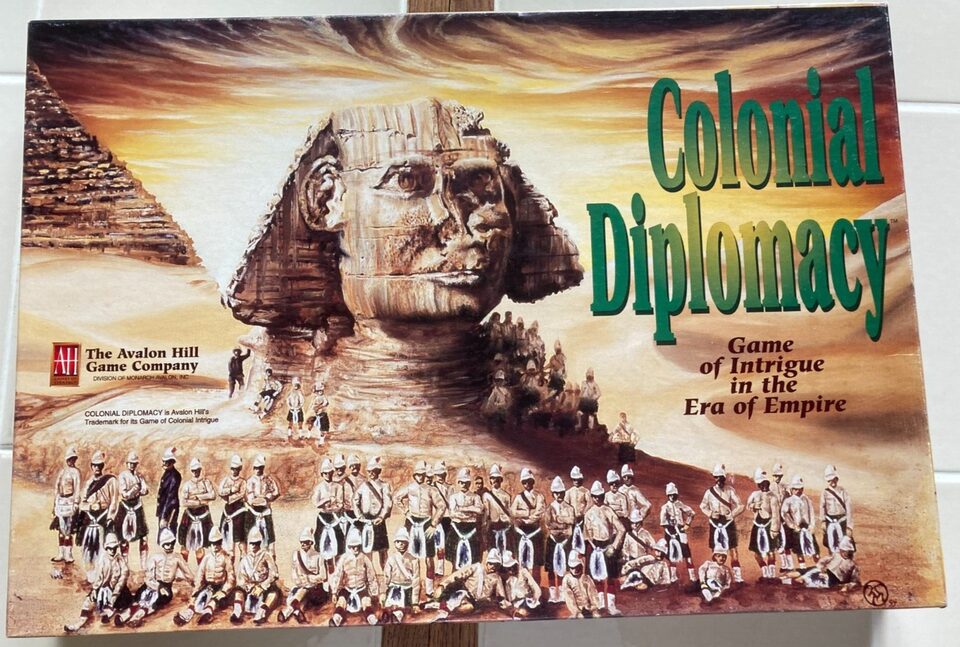Colonial Diplomacy (1994)
Colonial Diplomacy
Colonial Diplomacy is a variant of Diplomacy, a strategic board game created by Allan B. Calhamer in 1954 and released commercially in the United States in 1959. The game is set in Asia in the late 19th century, where much of the board is controlled by European colonial powers such as England, Russia, Japan, and Holland. Colonial Diplomacy is the first commercially published true simple Diplomacy variant.
Why is Colonial Diplomacy Popular?
Diplomacy is known for its lack of randomness and emphasis on player negotiation and strategy. It is especially well-suited to postal play, which led to an active hobby of amateur publishing. The game has a dedicated following and is still played today, both in person and online.
Game Components of Colonial Diplomacy
How To Setup Colonial Diplomacy
To set up Colonial Diplomacy, each player selects a colonial power and places their units in the designated starting territories. For example, Russia and China start with large land-based armies, while Holland begins with a predominantly water-based force in the islands around Java and Borneo. Great Britain starts with most of India and single fleets in Singapore and Hong Kong. Players receive small maps to aid in their negotiations and strategy planning.
Gameplay Mechanics and Game Objective
Player Experience
Colonial Diplomacy is known for its blend of simple movement mechanics and complex negotiation elements. Games can last several hours, with a typical session lasting around 2.5 hours for 8 turns. The game encourages strategic thinking and diplomatic maneuvering, making it highly engaging and often filled with moments of surprise and suspense.
Pros
Cons
Personal Thoughts on Colonial Diplomacy
Colonial Diplomacy is ideal for players who enjoy strategic games with a strong social element. It is perfect for those who appreciate the intricacies of diplomacy and negotiation, and are willing to invest the time required for a full game. This game is not for casual gamers looking for quick sessions but is a gem for those who relish complex, interactive gameplay.
We are supported by our audience. When you purchase through links on our site, we may earn an affiliate commission, at no extra cost for you. Learn more.

